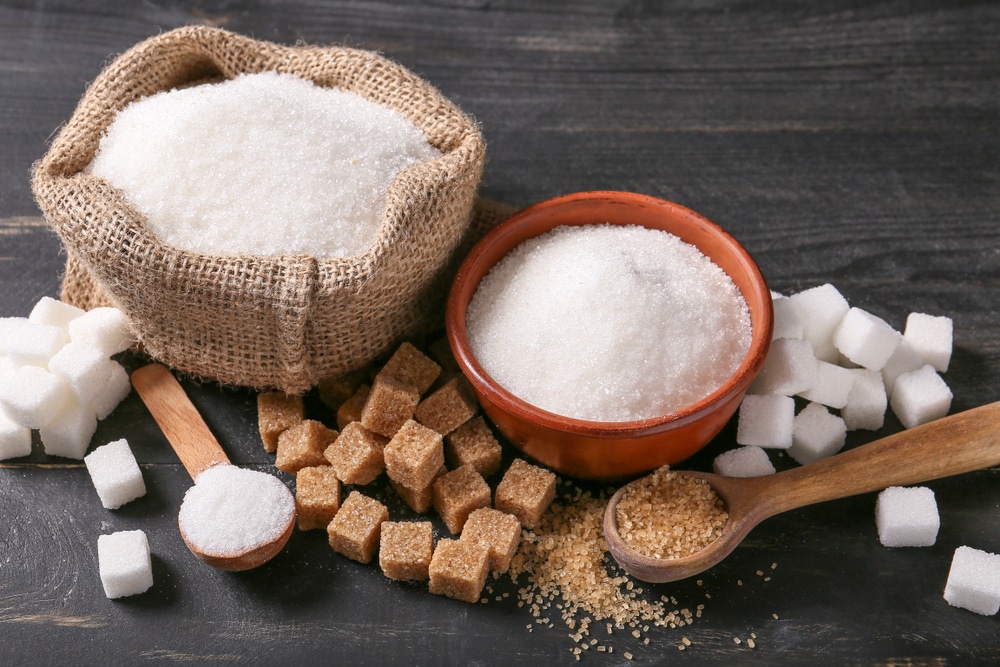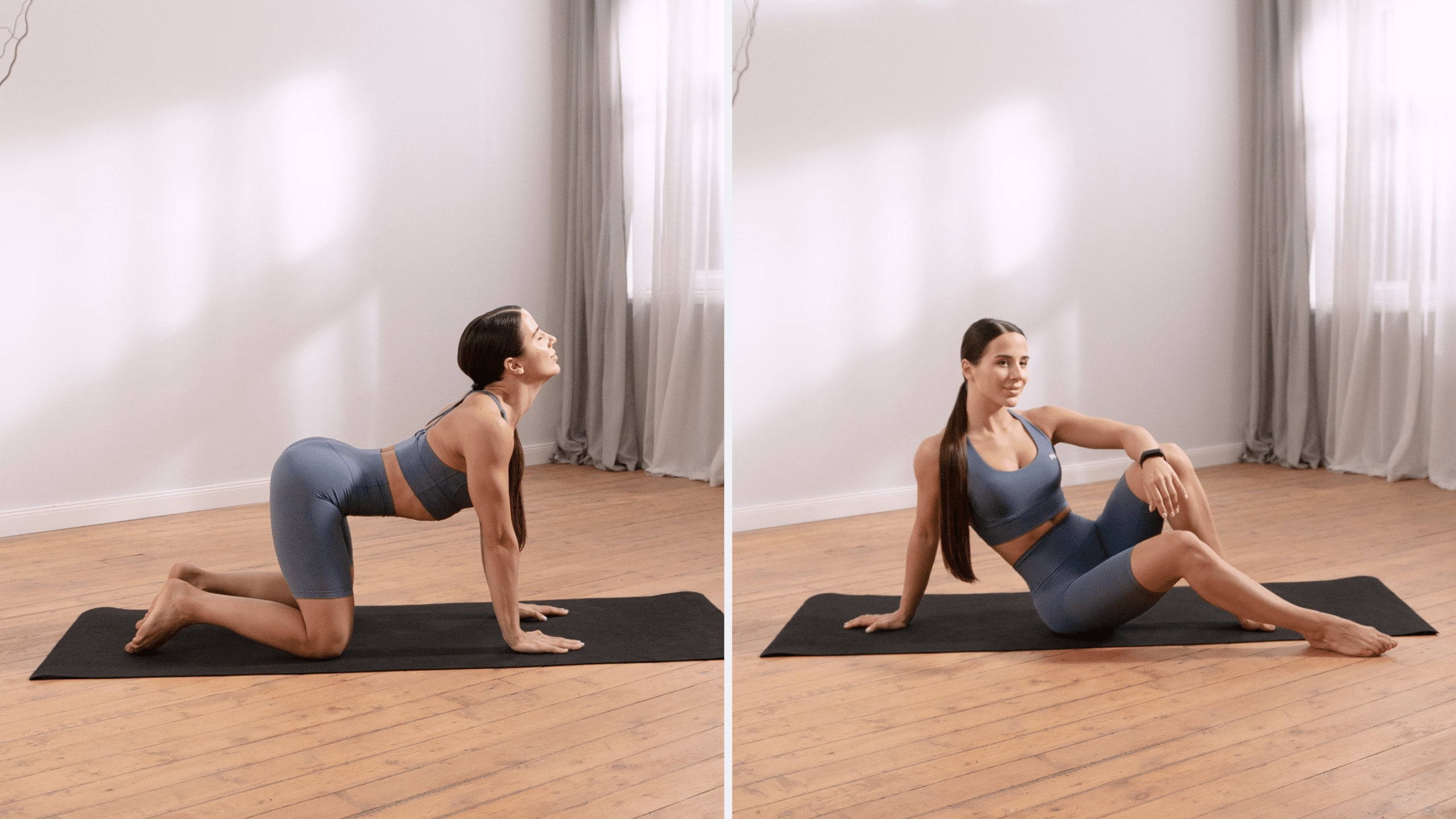Did you know that popping a gummy bear after a workout might be one of the best things you do for recovery? It’s true! Despite the bad rap sugar often gets, it can actually be beneficial after you’ve put your body through a strenuous workout. After intense physical exertion, your body needs energy to replenish its stores and repair muscles. Sugar can provide the fuel it needs to do this quickly and effectively, as well as help rebuild glycogen stores that are depleted during exercise. Should you liberally consume candy bars and soda while in this post-workout window? Absolutely not! There’s a fine line between consuming enough sugar to replenish your muscles and going overboard. Let’s dive into the intricacies of why and how you should be consuming sugar post-workout.
Get your personalized
meal plan!
What Does Sugar Do After A Workout?
Post-workout recovery is vital for all athletes. Eating sugar after a workout helps to:
Replenish Glycogen Stores
Glycogen is the energy source stored in your muscles and liver (1). During exercise, it gets depleted as your body draws on these stores for fuel. Depending on how long and how hard you exercised, the amount of glycogen stores depleted can be quite large.
Research on how much glycogen is used up during workouts suggests that those who engage in moderate-to-high-intensity exercises may deplete up to 50% of their glycogen stores. A workout consisting of resistance training can deplete as much as 25-40% of your glycogen stores (4).
Your body naturally produces glucose from the breakdown of carbohydrates, but this process can take too long for optimal post-workout recovery. Consuming carbohydrates immediately after a workout can increase the rate of glycogen synthesis.
So, consuming sugar post-workout helps to replenish your glycogen stores more quickly and effectively than relying on natural production.
Increase Muscle Protein Synthesis
Protein is one of the most important components of muscle recovery, and consuming protein post-workout is key for rebuilding and repairing microtears in muscle fibers (6).
Sugar, when consumed in the right amount and at the right time, can help your body use protein more efficiently. It triggers the release of insulin, which is important for protein synthesis (8).
Insulin helps your body absorb amino acids more quickly and efficiently so that muscle repair can get underway sooner. Studies have shown that consuming carbohydrates and protein post-workout increases muscle protein synthesis, allowing your body to rebuild and repair more quickly (7).
Some studies have found increased muscle protein synthesis with carbohydrate and protein supplementation after exercise (7). The combination of carbohydrate and protein seems to be the most effective.
Read More: The No Sugar Diet For Optimal Health
Increase Supplement Absorption
Eating sugar post-workout can also help your body absorb certain supplements more effectively. Creatine, for example, a popular supplement used to improve muscle growth, may be best absorbed when it’s taken with carbohydrates (10).
A shake or smoothie containing both a quality protein source and carbohydrates is one of the best post-workout snacks. The combination of simple sugars and proteins helps to quickly replenish depleted glycogen stores and aid in muscle repair.
Boost Mood And Help You Feel Energized
Exercise can be hard, especially if you’re pushing yourself to the limit. After a tough workout, you might feel exhausted, irritable, and moody. When you eat a simple sugar, what happens is that it enters your bloodstream faster than complex carbohydrates and helps restore depleted glucose levels.
This can help give you an immediate energy boost and improve your mood.Plus, with the release of endorphins and serotonin from exercise, consuming sugar post-workout can help you feel more energized and happy (3).
What Sugar To Eat After Workout?
The best sugar to eat after a workout is one that the body doesn’t need to break down. To fully understand why, let’s look at the different types of simple sugar and how they work.
Glucose, also known as dextrose or grape sugar, is a monosaccharide that your cells rely on as their major energy source (5). Glucose is quickly absorbed and increases your blood glucose levels rapidly, giving you an immediate energy boost.
Fructose, also known as fruit sugar, is a monosaccharide found in fruits and vegetables. It is predominantly metabolized by the liver (2).
Sucrose, also known as table sugar or cane sugar, is a disaccharide composed of one glucose molecule and one fructose molecule (50/50 ratio) (9).
This type of sugar is quickly absorbed, increases blood glucose levels rapidly, and provides an immediate energy boost.
The best type of sugar to eat post-workout is glucose. It provides an immediate energy boost, which can help you recover faster and get back to your daily routine.
It’s easy to get a pure form of glucose in the form of a powder or liquid. Glucose powder is widely available online and in health stores, while glucose liquids are usually found in sports nutrition stores Glucose powder can be mixed with water and consumed after a workout, while glucose liquids are ready to drink.
BetterMe app will kick you out of the mental funk, shake off your extra weight, rid you off your energy-zapping habits, and help you sculpt the body of your dreams. Intrigued? Hurry up and change your life for the better!
How Much Sugar To Eat Post Workout?
The amount of sugar you should eat after a workout depends on the intensity and duration of your workout. Follow these basic guidelines to help you decide how much sugar you should consume post-workout:
- For light exercise (under one hour): 20-30 grams of glucose
- For moderate exercise (1-2 hours): 30-50 grams of glucose
- For intense exercise (over 2 hours): 50-70 grams of glucose
Additionally, if you find that these amounts make you feel sluggish (a common side effect of consuming too much sugar post-workout), then you can decrease the amount to 15-20 grams.
Regardless of how much sugar you choose to take, it’s a good idea to optimize your post-workout nutrition with a combination of protein and BCAAs in the form of a shake or bar. This will help you restore glycogen levels, repair muscle tissue, and maximize your recovery.
The general recommendations for post-workout nutrition are to consume 40 grams of protein, and 5-10 grams of BCAAs within 45 minutes of your workout.
Remember, these guidelines are just general recommendations and may vary from person to person.
Read More: 6 Vegan Holiday Cookies That Scream Sugar, Spice, And Everything Nice
What If You’re On A Low-Carb Diet?
If you’re on a low-carb diet, consuming simple sugars conflicts with your diet plan. You’re probably eliminating carbs for the purpose of weight loss, and consuming sugar post-workout may reverse the progress you’ve made.
Instead of relying on simple sugars to replenish your energy, focus on a combination of fast-digesting proteins like whey or casein and BCAAs. This will help you restore glycogen levels and repair muscle tissue, without the added carbs.
Will Eating High-Glycemic Sugars Post Workout Make You Fat?
Eating high-glycemic (simple) sugars post-workout won’t make you fat, as long as you stay within your daily calorie range.
Here’s how sugar makes its way into your fat cells: when you consume more calories than your body needs, those extra calories are converted to fat and stored in your cells. This happens no matter what type of food you eat, including sugar.
Now, after a workout, your body needs the sugar. It has a deficit and will quickly use it to restore energy levels. This means there won’t be any left over to be stored as fat.
The Bottom Line
Eating the right type of sugar post-workout can help you recover faster and get back to your daily routine. Glucose is the best type of sugar to consume, as it’s quickly absorbed and provides an immediate energy boost.
The amount of sugar you should consume depends on the intensity and duration of your workout. Generally, it’s best to follow a combination of simple sugars and slower-burning carbohydrates for the best results. Additionally, if you’re on a low-carb diet, focus on protein and BCAAs to aid recovery.
DISCLAIMER:
This article is intended for general informational purposes only and does not serve to address individual circumstances. It is not a substitute for professional advice or help and should not be relied on for making any kind of decision-making. Any action taken as a direct or indirect result of the information in this article is entirely at your own risk and is your sole responsibility.
BetterMe, its content staff, and its medical advisors accept no responsibility for inaccuracies, errors, misstatements, inconsistencies, or omissions and specifically disclaim any liability, loss or risk, personal, professional or otherwise, which may be incurred as a consequence, directly or indirectly, of the use and/or application of any content.
You should always seek the advice of your physician or other qualified health provider with any questions you may have regarding a medical condition or your specific situation. Never disregard professional medical advice or delay seeking it because of BetterMe content. If you suspect or think you may have a medical emergency, call your doctor.
SOURCES:
- Biochemistry, Glycogenesis (2023, nih.gov)
- Biochemistry, Fructose Metabolism (2022, nih.gov)
- Endorphins and exercise (1984, nih.gov)
- Fundamentals of glycogen metabolism for coaches and athletes (2018, nih.gov)
- Physiology, Glucose (2022, nih.gov)
- Role of dietary protein in post-exercise muscle reconditioning (2013, nih.gov)
- Regulation of Muscle Glycogen Repletion, Muscle Protein Synthesis and Repair Following Exercise (2004 nih.gov)
- Regulation of protein synthesis by insulin (2006, nih.gov)
- Sucrose (n.d., nih.gov)
- The effect of combined supplementation of carbohydrates and creatine on anaerobic performance (2017, nih.gov)










